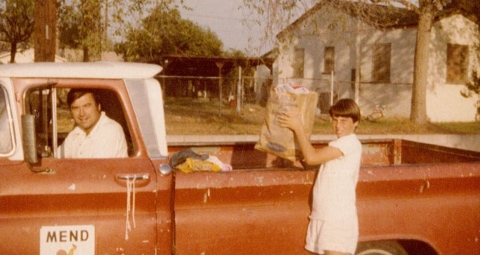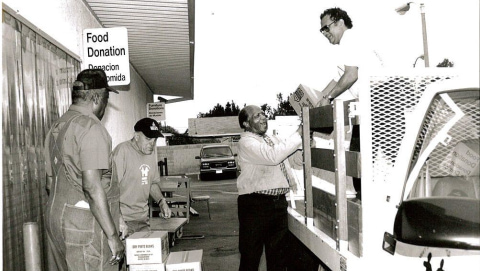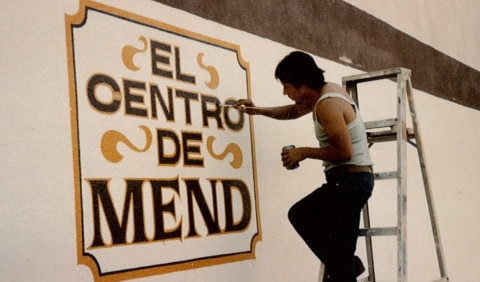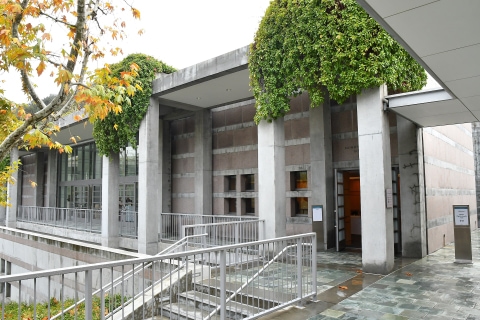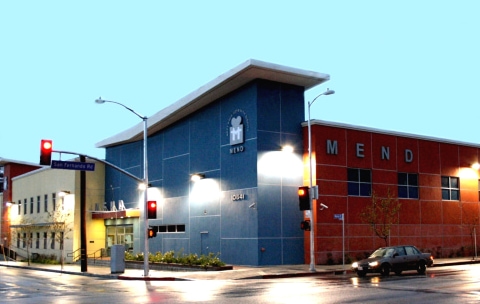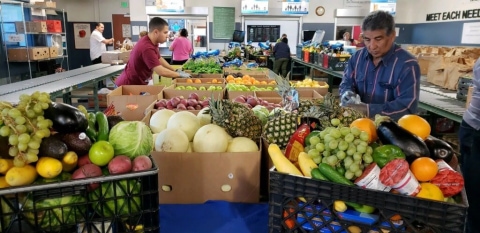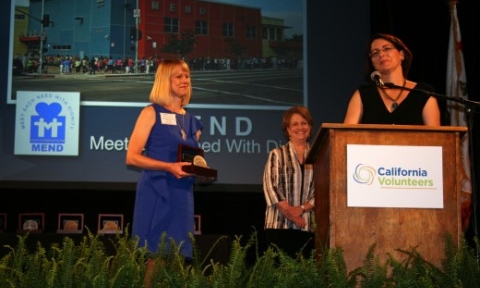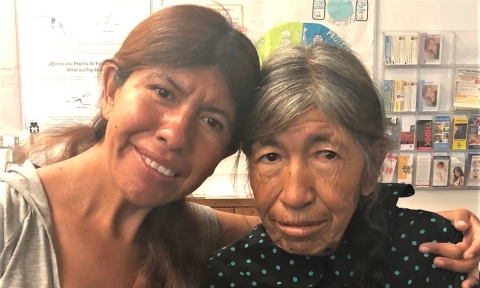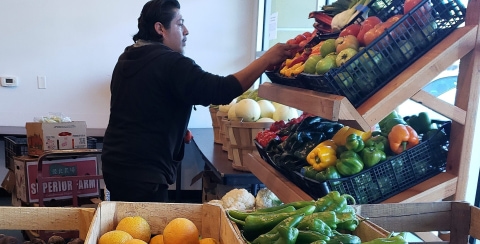
Our History
WHO WE ARE
MEND was started in 1971 by a young couple, Ed & Carolyn Rose, who were motivated by the poverty they witnessed in the Valley to do something about it. They set about persuading others – primarily members of their congregation at Our Lady of Peace Catholic Church - to help them collect and distribute food, clothing and furniture to poor families in the community. For years, the Roses were joined by several other families to serve the neediest people in the community, under the name they had started calling themselves: MEND – Meet Each Need with Dignity.
In 1976 they formalized their activities into a non-profit organization and in the mid-80s MEND established operations in Pacoima, where it continues to provide food, diapers, one-on-one case management and support services to low-income individuals and families. For 54 years, MEND has continuously served the most vulnerable in our community, including those who are homeless, unemployed/under-employed, very low income, and older adults.
OUR MISSION
With dignity & respect, MEND's mission is to meet the immediate needs of individuals and families and strengthen their capacity to thrive.
MEND’s programs and services help meet the immediate crisis needs of people, and support them in developing connections, skills and resources to address and overcome long-term challenges that have kept them from thriving. Core services are provided by the Foodbank, Homeless Care Services and Here We Thrive.
Deeper case managed services are offered through the Pathways to Wellness Program. We also provide work experience, life skills and financial literacy classes and support services.
WHO WE SERVE
A majority of the individuals and families who come to MEND live in extreme poverty – some in unconverted garages, uninhabitable spaces, or vehicles. Still others live in apartments with multiple other families – one family per bedroom. Some are able to secure transitional housing or stay in a shelter, still others are completely unsheltered.
Applying the Public Health Service Act and HUD’s definitions of homelessness – which include lacking any fixed, stable shelter; living in conditions not fit for human habitation; and “doubling up” – almost 100% of our clients qualify as homeless.
TIMELINE
1971
MEND is founded by Ed and Carolyn Rose, in their garage to help meet the needs of individuals in the San Fernando Valley. They are joined by 21 individuals from four local churches and together they establish food pantries out of three of the family's garages. The Christmas program is created.
1972
First office space, a desk in an LA County building, is opened to reach individuals in need.
1976
MEND becomes a Nonprofit 501(c)(3) organization.
1982
As MEND expands, operations move to a small warehouse in Pacoima. MEND collaborates with Neighborhood Legal Services and other agencies to assist clients with various issues.
1985
First capital campaign is successful in raising $90,000 as down payment on MEND's first building.
1987
Renovation of building is underway. First paid staff member and Executive Director come aboard.
1988
Renovated MEND center officially opens.
1991
Expanded services to offer free medical and dental services.
1992
Computer lab is opened for English learning and job training assistance programs.
1993
Second capital campaign is planned to add an additional 10,000 square feet to the building and purchase two parcels of land.
2001
MEND celebrates its 30th anniversary with a gala silent auction and dinner at the Skirball Center attended by the Mayor. Vision services begin.
2007
New building opens to house an intake department, food bank, clothing center, and health clinics on San Fernando Road.
2009
Partnerships with local colleges and universities offer internship opportunities to students and help serve the community.
2012
MEND is named California Volunteering & Service Award -Non-Profit of the year by Governor Brown.
2018
MEND launches Family Support Program, a case management service, to provide tools and resources to help families to build self-sufficiency and disrupt cycles of generational poverty.
2019
Buen Provecho Farmers' Market opens to provide abundant fresh produce to clients at no cost. In the same year, Pathways to Wellness Program to help clients achieve greater health outcomes through better nutrition and exercise. Soon after, The Little Health market, a specialty “store” stocked with healthy alternatives opens to support participants in the program.

